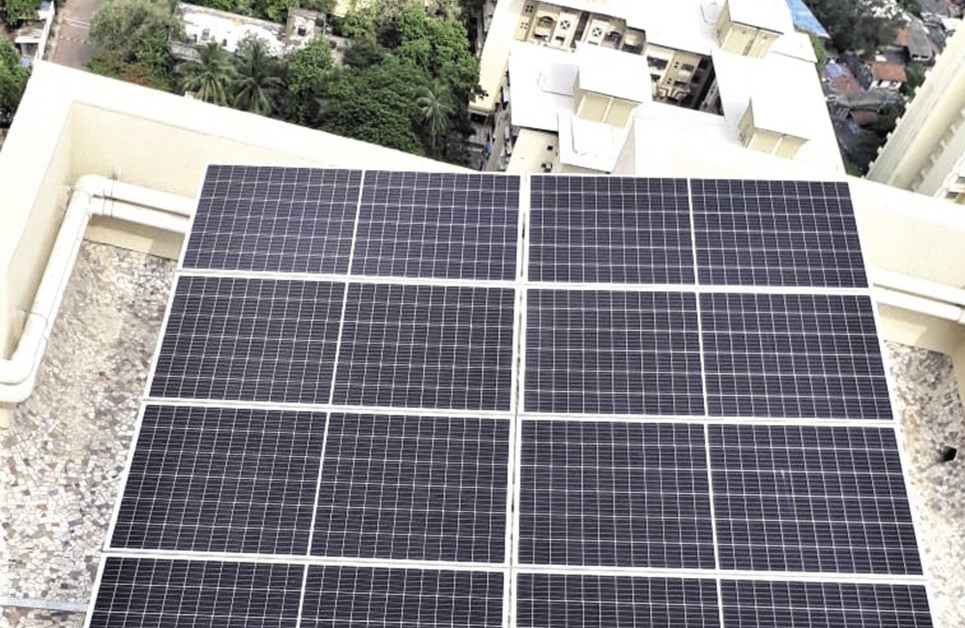Over 250 million households across India have the technical potential to deploy 637 GW of solar energy capacity on rooftops, according to a new independent report by the Council on Energy, Environment and Water (CEEW) released today. The report authors also found that rural areas have a higher technical rooftop potential of 363 GW than urban areas (274 GW) considering the residential rooftop area. Further, residential willingness to install rooftop solar systems is the highest in Gujarat at 13%, while the national average is 5%.
The report stated that deploying just one-third of the 637 GW solar potential could meet the residential sector’s entire electricity demand of 310 TWh.
The overall technical potential reduces to one-fifth (118 GW) after factoring in the current electricity consumption of households. “Most residential consumers fall into low-consumption slabs and solar may not be economically feasible for them without financial support even though it is technically possible,” states the report.
The potential reduces further to 11 GW when no capital subsidy is considered. “The payback period for rooftop solar is restricted to five years and we factor in consumers’ willingness to buy rooftop solar,” explained the report authors.
However, with the Ministry of New and Renewable Energy’s capital subsidy, the report authors have assessed the potential increasing to 32 GW as the subsidy makes the solar systems feasible for more consumers.
Currently, India has installed 11 GW of rooftop solar capacity, of which only 2.7 GW is in the residential sector.
The CEEW report, supported by Bloomberg Philanthropies, did a bottom-up analysis across 21 Indian states that cover 97% of the country’s population. It found that 60% of the residential rooftop potential is concentrated in just seven states — Uttar Pradesh, Maharashtra, West Bengal, Odisha, Rajasthan, Andhra Pradesh, and Tamil Nadu.
Lalit Bohra, joint secretary, MNRE, said, “Accelerating the adoption of rooftop solar is crucial to decarbonize the economy and help India achieve its net zero goal by 2070. MNRE has been actively promoting the rooftop solar sector through its strategic interventions. The recently announced distributed RPO obligation will accelerate demand generation in the rooftop sector. The National Dialogue on Rooftop Solar by CEEW and the launch of its report on the potential are timely interventions to build a common consensus among stakeholders towards making rooftop solar central to India’s energy transition.”
India’s rooftop solar potential is spread geographically across states in contrast to other renewable technologies such as utility-scale solar and wind projects, and could be critical to meeting the energy transition ambitions of states.
This content is protected by copyright and may not be reused. If you want to cooperate with us and would like to reuse some of our content, please contact: editors@pv-magazine.com.









2 comments
By submitting this form you agree to pv magazine using your data for the purposes of publishing your comment.
Your personal data will only be disclosed or otherwise transmitted to third parties for the purposes of spam filtering or if this is necessary for technical maintenance of the website. Any other transfer to third parties will not take place unless this is justified on the basis of applicable data protection regulations or if pv magazine is legally obliged to do so.
You may revoke this consent at any time with effect for the future, in which case your personal data will be deleted immediately. Otherwise, your data will be deleted if pv magazine has processed your request or the purpose of data storage is fulfilled.
Further information on data privacy can be found in our Data Protection Policy.